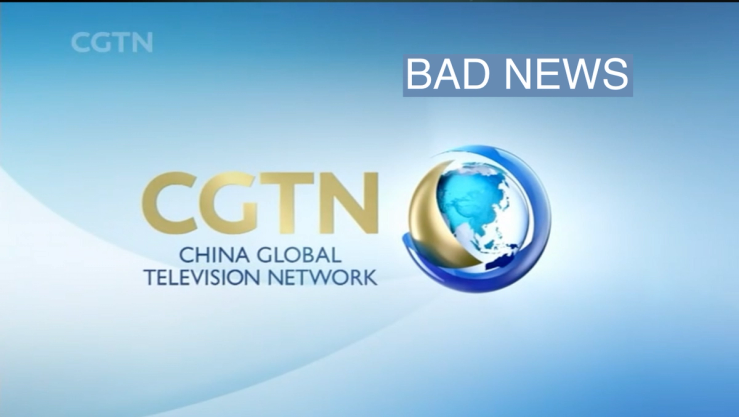The News
U.S. and European leaders are worried that they’re losing ground in the global battle for public opinion on the war in Ukraine, and have begun formulating a strategy to counter what they claim is a united messaging push by Russia and China that has struck a chord in the global south.
“The Kremlin’s and the [China’s] disinformation campaigns, amplified by their mouthpieces around the world, are used to sow distrust and discontent,” James Rubin, the Biden administration’s new special envoy on global communications, said during a speech in Washington earlier this month. “Democracies must now do more than ever to dispel this flood of falsehoods.”
Russia and China have built expansive media operations across Africa, Asia, and Latin America that are cutting into the viewers of U.S. and European outlets. Western officials say Moscow and Beijing are now wielding those bullhorns to promote a coordinated message blaming the Ukraine conflict on NATO, often while airing false anti-western conspiracy theories about the war’s origins.
American and European officials have been holding strategy meetings in Washington, London and Brussels to try and fashion a more organized response. Tools they’ve discussed include continued sanctions against Chinese and Russian media companies, training foreign governments and media to better identify and combat state-driven disinformation, and bolstering the West’s own media presence abroad.
In this article:
Jay’s view
While the war in Ukraine has galvanized the West, emerging powers, such as Brazil, India and South Africa view the conflict quite differently. Most of their governments oppose implementing Western sanctions against Russia and are sympathetic to a peace proposal initiated by China last month that would lock in some of the Kremlin’s territorial gains. That position tracks with public opinion among their populations: Recent polling shows that most Indians would prefer the war end as quickly as possible, even if Ukraine has to give up land. India, as the world’s largest democracy, is seen as a critical Western ally moving forward.
It’s impossible to say how much of the developing world’s views of the conflict have been shaped by Chinese and Russian messaging, as opposed to long-standing concerns about Western dominance. And some analysts have cast doubt on how much China and Russia actually coordinate their communications efforts. But U.S. and European leaders are right to be alarmed that they may be losing the messaging battle on Ukraine, given how it is complicating their efforts to isolate Russia economically and politically.
Step Back
Chinese and Russian leaders have been taking steps to integrate their state media operations since at least 2013, when outlets like Russia Today and Voice of Russia began sharing content with the Xinhua News Agency and the People’s Daily Online. RT executives said their collaboration was designed to build a “multipolar and pluralistic world.”
Since the war in Ukraine erupted, China’s Foreign Ministry and state media have carried and amplified a number of false conspiracy theories promoted by the Kremlin to justify its invasion. Chief among them: The Russian charge that the U.S. has developed dozens of biological weapons labs in Ukraine for use against Russian forces. As the conflict has worn on, journalists from Chinese outlets, such as Phoenix TV, have embedded with the Russian military to cover major battles.
Pro-Russia voices have also been promoted heavily in Chinese media, which cited Moscow officials between three and eight times more than their Ukrainian counterparts last year, according to a study by the German Marshall Fund of the United States, a think tank.
Know More
Both Russia and China are reaching growing audiences in Africa, Latin America and the Middle East through global news operations, such as RT and CGTN, that broadcast in local languages, including English, Spanish, Arabic, and in some cases French. Rubin, the State Department’s disinformation czar, recently warned that Chinese state news agencies have begun providing local outlets in developing countries with free content, on the condition they not use stories from other third-party services.
Beijing is simultaneously seen as adept at using social media platforms such as Weibo, Youtube, and Facebook — where Chinese state media pages have over 1 billion followers — to promote its message abroad, sometimes with the help of influencers who mask their government affiliations.
One theme strongly promoted in Chinese and Russian messaging is the idea that NATO, and not Moscow, is responsible for the food shortages in the developing world caused by dwindling Ukrainian wheat supplies.
“Moscow told the people of vulnerable countries, places where parents see their children suffer from starvation, that its war against Ukraine was not responsible,” Rubin said earlier this month.
U.S. officials have said the Biden administration is still fashioning new ways to combat what they describe as Russian and Chinese propaganda. One possible option would be to try and reduce the reach of their state media operations globally through sanctions, or by pressuring countries to cancel their broadcast licenses. (The U.S. has already sanctioned Russian outlets like RT and Sputnik, while some Western countries have revoked CGTV’s broadcast rights.)
Another option: Drown out the competition. Western media outlets, such as CNN, the BBC and Voice of America, are still seen as having larger global audiences than RT and CGTN. But the Chinese, in particular, have been ramping up spending at the same time the West has been pulling back. The BBC, for example, recently ended its Arabic and Persian radio broadcasts. The U.S., U.K. and Europe could seek to once again outpace Beijing’s spending.
The View From BEIJING
The Chinese and Russian governments deny they’re engaged in coordinated disinformation and shift the blame to Washington and Europe for allegedly distorting the debate on Ukraine. Beijing is particularly critical of the Biden administration’s claims that China is preparing to arm the Russian military and that Xi Jinping knew of Vladimir Putin’s invasion plan ahead of time.
“The U.S. has proved to be the primary propagator of disinformation and should look itself in the eye,” Liu Pengyu, the Chinese embassy’s spokesman in Washington, told Semafor.
Notable
- European Union leaders hosted a February conference focused on combating what they claim are Russian and Chinese global disinformation operations.
- Reporters at U.S.-funded RFE/RL have been closely tracking Chinese messaging on the war in Ukraine.
- David Bandurski, director of the China Media Project, writes that the fusing of Russian and Chinese media goes back at least a decade.


